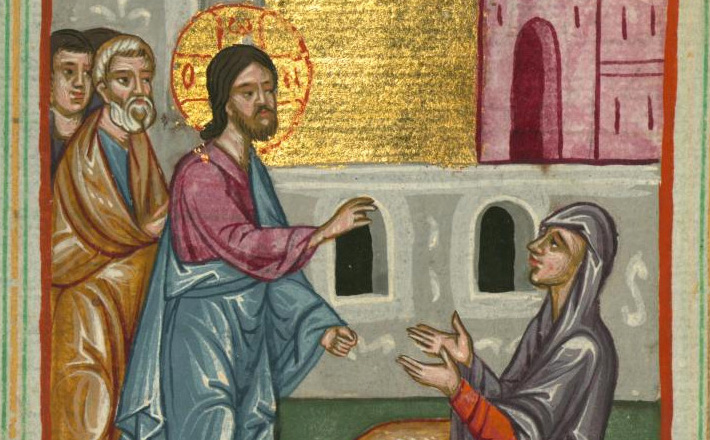Commentary on Isaiah 56:1, 6-8
The prophet Isaiah preached in Judah during the eighth century; his words are in the first thirty-nine chapters of the book that bears his name.
The anonymous prophet we call Second Isaiah preached among the exiles in Babylon sometime shortly before the return to Judah that commenced in 538; his words are in chapters 40-55 of the book of Isaiah. We refer to the prophet or prophets who produced the last section of the Isaiah scroll (chapters 56-66) as Third Isaiah. Those words address the situation in Judah during the early years of the effort to rebuild Jerusalem and reestablish life in Judah.
Isaiah 56, then, opens the third and final part of the book of Isaiah. Its words begin Third Isaiah’s attempt to address the challenges the people faced in rebuilding a devastated nation. One challenge we preachers face is accurately assessing the parallels between the situations of the returned exiles and our congregations. Some of us may preach in situations in which the church is trying to rebuild from sudden devastation brought on by controversy or scandal or from gradual devastation brought on by a slow decline that has finally reached a critical point. Even if we don’t, the text offers a word to our listeners in at least two ways. First, it could happen here, so some preventive maintenance is always in order. Second, even if we are somewhat living up to the call of these words, how much more can we be?
God’s doing and ours
The prophet’s opening declaration is, “Thus says the Lord: Maintain justice, and do what is right, for soon my salvation will come, and my deliverance be revealed” (Isaiah 56:1). On the one hand, God’s “salvation” and “deliverance” have already come. After all, the first groups of returning exiles have arrived in Judah. The salvation and deliverance that Second Isaiah promised have happened. On the other hand, there is more to what God is doing than getting the exiles home. God’s purposes of salvation are still being worked out, and the people’s lives are to reflect those purposes.
God’s people are to do what God calls them to do because of what God is doing. Both “justice” and righteousness (“what is right”) have to do with relationships. The people are to respond to God’s gracious acts by developing and maintaining a sound relationship with God. Developing and maintaining sound relationships with other people goes hand-in-hand with a sound relationship with God. Paul’s admonition to the Philippians sheds some additional light on the prophet’s encouragement: “Work out your own salvation with fear and trembling; for it is God who is at work in you, enabling you both to will and to work for his good pleasure” (Philippians 2:12b-13). God is working God’s purposes of salvation out, and God’s people are to participate in what God is doing. We do what we do because of what God is doing. What we do is part of the process.
Distinctiveness, not exclusivity
The NRSV translates the same Hebrew word (tsedeqah) as “what is right” in the first part of verse 1 and as “deliverance” in the second part.1 Somehow, then, God’s deliverance and God’s people’s righteousness are related. What does such righteousness involve? The prophet stresses sabbath observance (56:2), which emerged as a distinguishing characteristic for Jews during the exile.
Sabbath observance demonstrated the distinctiveness of God’s people. That doesn’t mean, though, that it was to be a sign of exclusivity. In fact, the prophet proclaims that eunuchs (see Isaiah 56:3-5) and foreigners (verses 6-8) are welcome to join the covenant-keeping, sabbath-observing community. God wants God’s people to be distinctive, but God also wants them to expand in population and for their population to expand in diversity.
Deuteronomy 23 laid out who was not to be admitted in the assembly of the Lord. Among them were eunuchs (someone “whose testicles are crushed or whose penis is cut off” — verse 1) and foreigners (specifically Ammonites and Moabites — verses 3-4). But as God’s salvation and deliverance go forward, these who were formerly excluded will be welcomed. We may rightly regard their inclusion as standing for the inclusion of any and all who will come.
What does it mean for the church to be the church? Circumstances may tempt us to use our distinctiveness to practice exclusion. How can we invite others to join in our distinctiveness instead? And what should that distinctiveness look like?
They’re coming
What to do about “the other” was a raging debate in the post-exilic period. Some advocated for particularism. We see that in the Ezra’s instructions that men send away their foreign wives and children born of those marriages. Other post-exilic writings push back against such attitudes. The book of Ruth depicts the titular heroine, who is Moabite, as the great-grandmother of King David. The book of Jonah demonstrates that God would forgive even the Assyrians, who in their heyday were despised by pretty much everybody in the Ancient Near East, if they repented. Third Isaiah agrees with the authors of these two biblical short stories.
One of the hymns I used to hear a lot (but haven’t heard in a long time) celebrates the fact that “‘Whosoever’ Meaneth Me.” Perhaps we should consider changing it to “’Whosoever’ Meaneth Them.” Or maybe “’Whosoever’ Meaneth Us.”
To paraphrase Dr. King, the arc of salvation history is long, but it bends toward inclusion.
How are we participating in what God is bringing about?
Notes
1 Paul D. Hanson, Isaiah 40-66, Interpretation: A Bible Commentary for Teaching and Preaching (Louisville, Ky.: John Knox, 1995) 193.


August 20, 2017